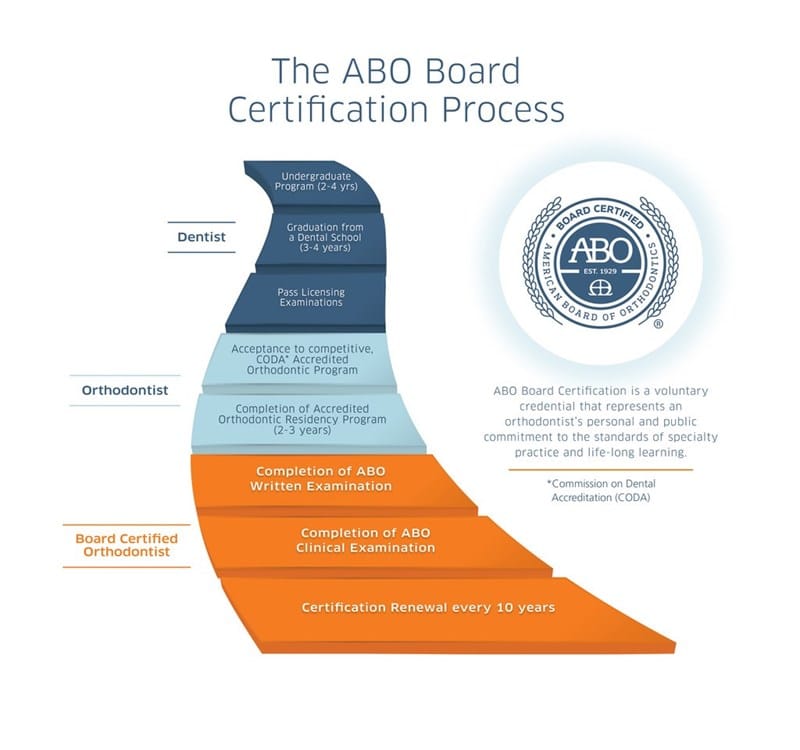Are All Orthodontists Board Certified?
No, not all orthodontists are board certified. While all orthodontists must be licensed to practice, only a portion have pursued the additional step of becoming board certified. Achieving certification from the American Board of Orthodontics (ABO) is a prestigious accomplishment, requiring orthodontists to go beyond the standard two to three years of advanced education needed to specialize in orthodontics. This voluntary process involves:
- Showcasing real-world patient care achievements through detailed case reports addressing a variety of patient challenges.
- Undergoing rigorous evaluations by an esteemed panel of examiners.
- Demonstrating clinical skills, judgment, and orthodontic expertise.
How Many Certifying Boards Are Recognized by the American Dental Association in Orthodontics?
Just one. The American Board of Orthodontics (ABO) is the only certifying board in orthodontics recognized by the American Dental Association. Established in 1929, it is also the oldest specialty board in dentistry. The ABO’s mission is to enhance the quality of orthodontic care through certification, education, and professional collaboration, setting a high standard for the profession.
Why Do Orthodontists Choose to Pursue Board Certification?
Completing the voluntary ABO certification process signifies an orthodontist’s commitment to excellence in their field. It highlights their dedication to providing the highest standards of care to their patients and to staying informed about the latest advancements in orthodontics. For many orthodontists, board certification represents both a professional and personal milestone, demonstrating their expertise and their ongoing commitment to delivering superior patient outcomes.
What Are the Steps to Achieve ABO Certification?
Since its founding, the ABO has continually refined its certification process to reflect advancements in the field. Today, achieving board certification involves several comprehensive steps:
- Written Examination: Orthodontists must pass a 240-question exam covering all critical areas of orthodontic knowledge.
- Clinical Examination: Once the written exam is successfully completed, candidates present detailed case reports from their practice or residency. These cases must illustrate a track record of exceptional patient care.
- Oral Examination: During this phase, orthodontists discuss their case reports and are tested on a wide range of clinical and academic topics by a panel of expert examiners.
Orthodontists who successfully complete these steps are awarded Board Certification for a time-limited period. To maintain this status, they must renew their certification every 10 years by demonstrating a continued commitment to high-quality patient care. Learn more here.


